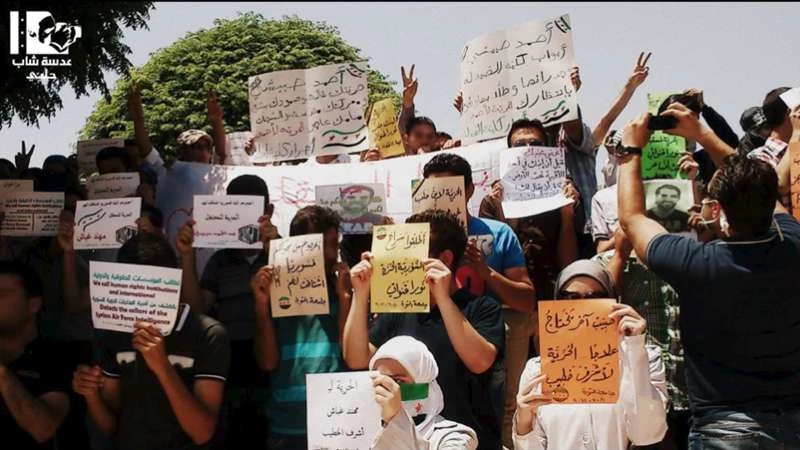“We were like any group of friends in university,” Adnan tells Syria Direct. “We’d spend hours together discussing politics, music and literature.” Their shared dream? “We all wanted to complete our studies to help our families.”
Adnan and two childhood friends, Rami and Hussam, joined the protests of spring 2012. The decision would change the trajectory of their lives.
“When the revolution began and the regime started killing civilians, we couldn’t remain apathetic. Our university became a dangerous place. Anyone who expressed an opinion regarding the ongoing protests or who spoke out against the regime’s criminality was in danger.”
“We couldn’t remain apathetic.”
“As the movement continued, our consciences forced us to join. Then there was a wave of arrests at the university. Friends would be arrested—they would just disappear. It was impossible to obtain any information about them. At this point, we all left the university.”
Rami studied software engineering. Hussam was studying Arabic literature.
“He “When the protests started, Rami began photographing them. Once the protests and marches turned into battles, Rami began reporting on military developments in southern Syria for television outlets. He spent most of his time covering battles in Daraa and Quneitra. Last year, Rami was driving to cover a battle in Sheikh Maskeen, Daraa, when his car was struck by a shoulder-fired rocket and he was killed.” Hussam was about to graduate when he began participating in protests against the regime in Daraa. “The regime put his name on a wanted list. In order to avoid arrest, Hssam enlisted in the FSA in Daraa. He was killed fighting in the town of Ataman, Daraa. That was in 2015.” “In 2012, the regime began bombing civilians. The number of casualties grew rapidly, but at the same time, many of the doctors who treated the wounded were arrested by the regime, leaving civilians with an alarming shortage of doctors. I felt obligated to help, even if it meant ending my studies early,” Adnan explains. “Since many of the doctors had been arrested, five nurses and I began treating protesters who were injured by regime gunfire. We had limited resources, but we did what we could to provide care.” “A general surgeon taught me how to perform basic operations. Eventually I began performing surgeries on abdominal injuries. At the same time, I worked as a surgeon’s assistant on all types of operations. I remained in this role for two years.” “Then I started performing more serious surgeries by myself. I progressed to observing orthopedic operations. Throughout this time, I continued to review my medical textbooks.” “When I decided to quit university, I couldn’t think about anything other than helping people. I was satisfied with the medical work I started doing.” “What I want most for the future is for Syrians to be able to live in safety and security, for Syrians to be able to rid themselves of the Assad regime and live without daily killing and bombing,” Adnan stated. “I still hope to return to my studies, to realize my and my family’s dream and become a licensed doctor.”



التعليقات (0)